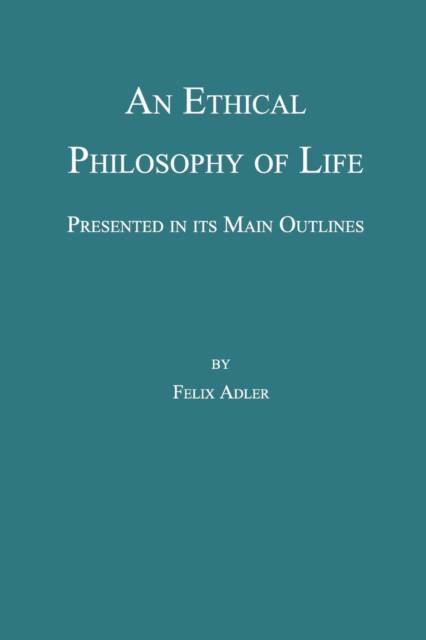
- Afhalen na 1 uur in een winkel met voorraad
- Gratis thuislevering in België vanaf € 30
- Ruim aanbod met 7 miljoen producten
- Afhalen na 1 uur in een winkel met voorraad
- Gratis thuislevering in België vanaf € 30
- Ruim aanbod met 7 miljoen producten
Zoeken
€ 21,95
+ 43 punten
Omschrijving
Considered by many to be one of the major influences on modern Humanistic Judaism, Felix Adler (1851-1933) was a professor of political and social ethics and a social reformer who founded the Ethical Culture movement. "An Ethical Philosophy of Life, Presented in its Main Outline" is divided into four parts. The first is an autobiographical introduction describing the various milestones by which Adler arrived at his worldview. The second part expounds on the philosophical theory. The third part contains applications of the theory to the more strictly personal life, under the captions of the "Three Shadows of Sickness, Sorrow and Sin." The final part applies the theory to social institutions, the family, the vocation, the state, the international society and the Church.
Specificaties
Betrokkenen
- Auteur(s):
- Uitgeverij:
Inhoud
- Aantal bladzijden:
- 390
- Taal:
- Engels
Eigenschappen
- Productcode (EAN):
- 9780989732338
- Verschijningsdatum:
- 27/11/2013
- Uitvoering:
- Paperback
- Formaat:
- Trade paperback (VS)
- Afmetingen:
- 152 mm x 229 mm
- Gewicht:
- 521 g

Alleen bij Standaard Boekhandel
+ 43 punten op je klantenkaart van Standaard Boekhandel
Beoordelingen
We publiceren alleen reviews die voldoen aan de voorwaarden voor reviews. Bekijk onze voorwaarden voor reviews.











